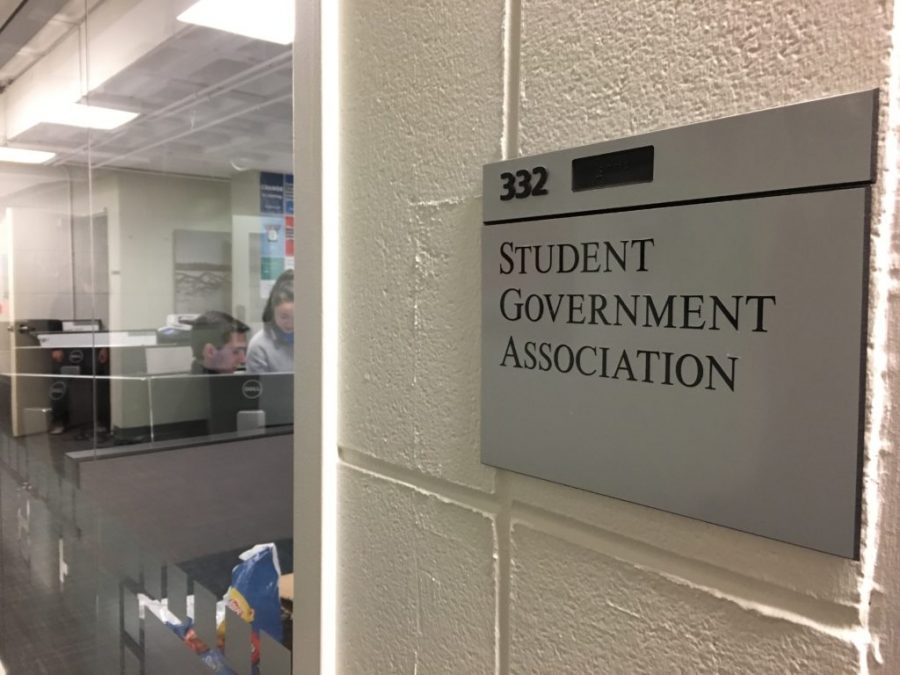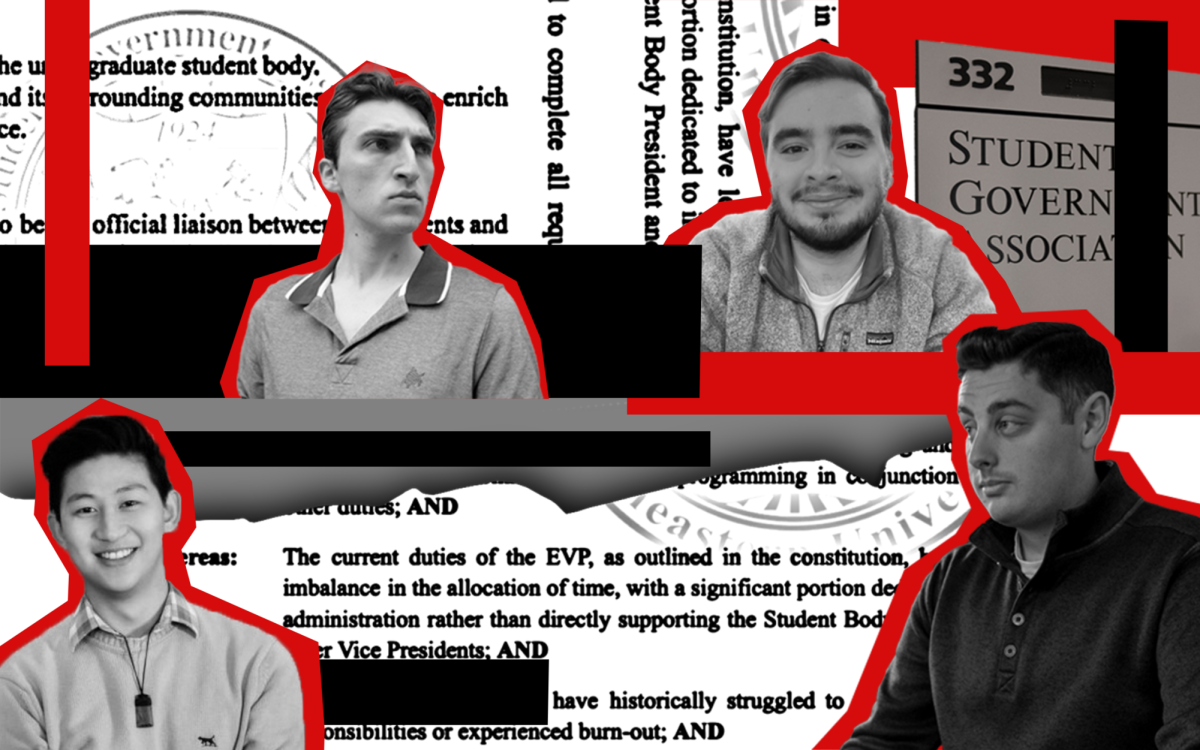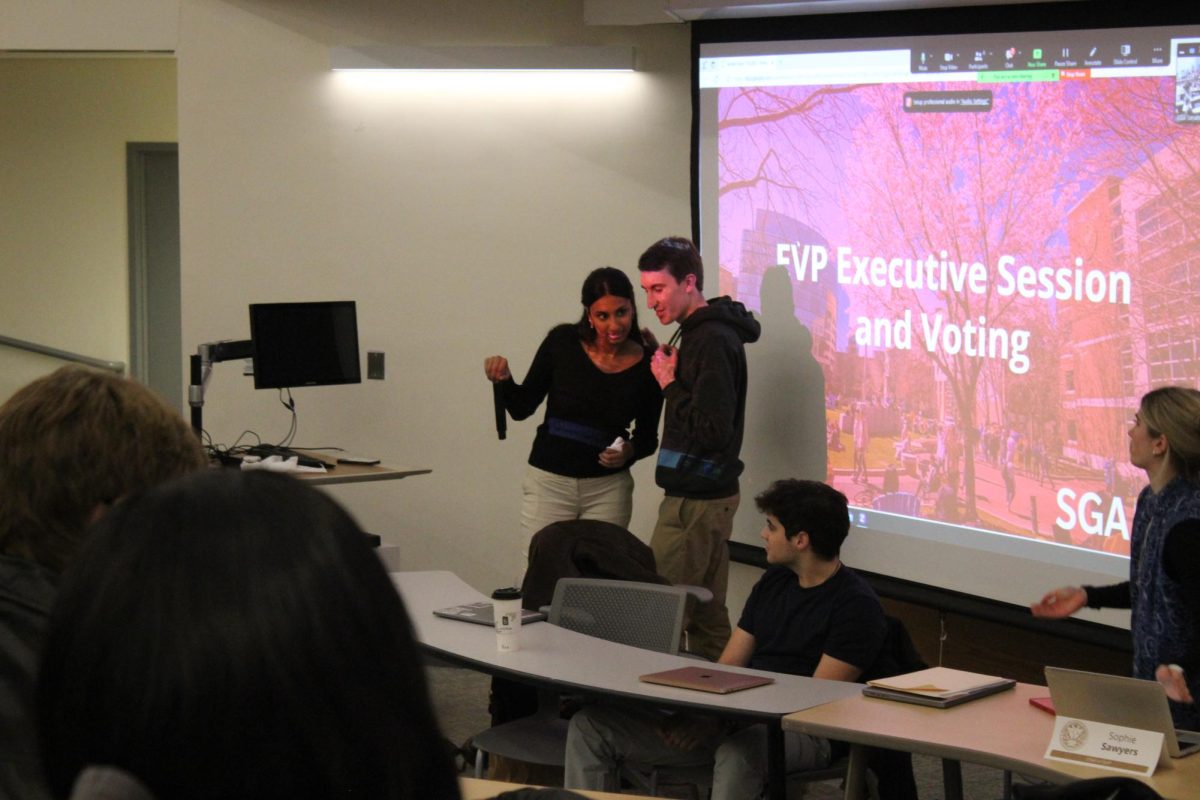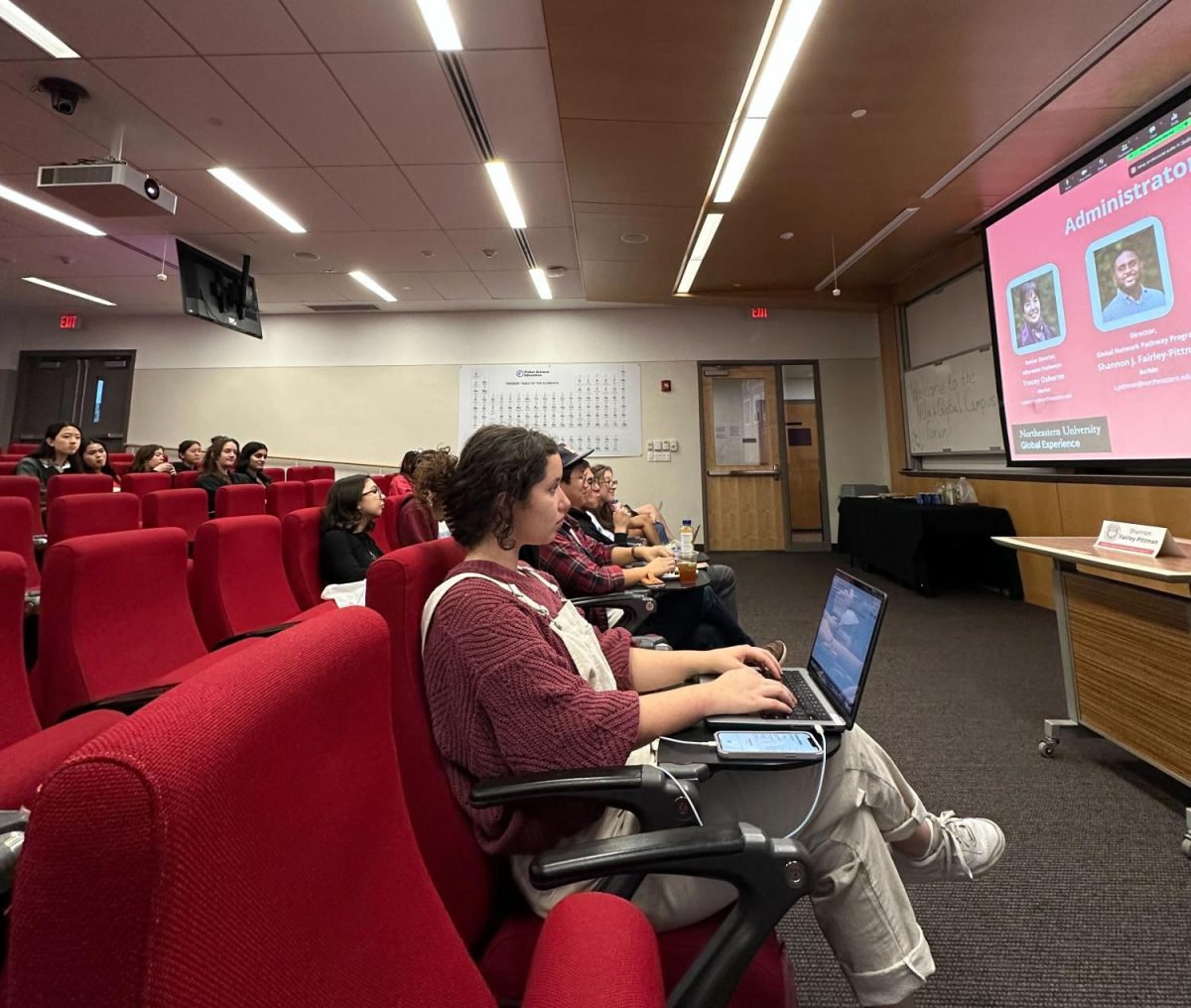At a Student Government Association, or SGA, meeting Monday, senators held a tense and contested debate on whether to introduce and discuss new legislation that would temporarily restructure the role of executive vice president, ultimately delaying its introduction indefinitely. Last week, former Executive Vice President Matty Coleman, a fourth-year psychology major, resigned from the role, citing concern for their “personal well-being and health.”
An emergency election to appoint a new executive vice president, or EVP, was scheduled for the full-body senate meeting Monday before being delayed due to the proposal to restructure the EVP role. The legislation, written by Student Body President Charlie Zhang and Vice President for Student Success and former EVP Sebastian Chávez Da Silva, a fifth-year industrial engineering and political science double major, states that the role of EVP has “historically been a strain on its occupants due to its expansive responsibilities and focus on internal Senate management.”
“We have a number of reasons and a very strong consensus among SGA currently that the position of EVP has been broken for a while now,” Zhang, a fourth-year independent major in sociology, anthropology, and global strategy, said at the meeting Monday. “This gives us a really good impetus to try and change that.”
Zhang said there were no nominations for EVP since Coleman announced their resignation last week, something he said was indicative of “a role that no one is entirely prepared for” and that the position had “burnt out four previous people.”
The SGA constitution outlines current responsibilities of the EVP as assisting the president in planning, projects and initiatives, serving as presiding officer of the Senate meetings and overseeing internal communications, events, archives, fundraising, alumni connections and the work of all vice presidents. The role demands around 30 hours per week, according to SGA’s website.
The proposed resolution states that the work demand has “led to an imbalance in the allocation of time” to certain duties and caused students to struggle to “complete all required responsibilities or [experience] burn-out.”
The legislation would create a new “speaker of the senate” role, which would entail chairing the senate, overseeing senate communications, recruiting for events and educating senators. It further outlines that the EVP would no longer be presiding officer of the senate, instead allocating the critical position to the speaker.
A 10-minute question and answer session was supposed to be held at the meeting, which would allow the authors of the legislation to discuss its contents and answer questions and concerns of senators before editing the document prior to the final vote. However, senator Giovanni Falco, a third-year criminal justice and political science combined major, introduced a motion that would table discussion of the legislation, delaying the appointment of a new EVP and extending the appointment of interim presiding officer Shriya Thaganda, a fourth-year economics and business administration combined major and vice president of external affairs.
Vice President of Operational Affairs Matt Coughlin, a third-year mechanical engineering major, objected to the motion. He said he believed it was “important to give the authors an opportunity to invite [senators] to hear this piece of legislation.”
Owen Kasmin, executive director of elections and a third-year history and political science combined major, was outspoken in his opposition to discussion of the legislation, citing the rapid change of plans for the meeting and the recent restructuring of the senate last semester.
“I think I speak for everyone in the room in saying that last Monday, we were told that an emergency election would occur today with nominations on the floor for the chair for debate,” Kasmin said. “This is a significant change not only in the leadership structure of an organization but the complete structure of the senate itself … because of how big of a change this is and how quickly we were turned around with it, it should be tabled so we can move forward with what we were told on Monday last week.”
Others argued for the legislation to be heard and discussed, but not yet voted on, because of time constraints and other legislation which may be presented later on in the semester.
“When we say ‘The discussions need to happen behind the scenes,’ I think I speak for a lot of us when I say those discussions almost never include senators who are the ones voting on this right now,” said Cassidy Donoghue, a second-year criminal justice and psychology combined major and director of SGA engagement and advancement. “I think the authors deserve a chance to speak and senators deserve the chance to ask questions and get their voice out there.”
Zhang reiterated that the intended goal of the discussion was to communicate why the legislation was proposed and allow senators to give feedback on the proposed changes over the following week. He also said the debate about whether to discuss the legislation would take longer than the actual discussion and reminded senators that a delay would mean an unplanned SGA meeting over Thanksgiving break.
“It hurts our efficiency as an organization and our promise to the student body to be as efficient and as strong of an advocate as possible,” Zhang said.
Other senate members argued that due to the largely first-and-second-year makeup of the SGA, many would be “confused” about the proposed changes.
“I can’t imagine being a first-year right now. I’d be wondering what the hell is going on. It’d really be beneficial to utilize something like a town hall to discuss a change like this before it ever being presented even for a Q-and-A,” said Tiffany Pottenburgh, a fourth-year history, culture, and law major and special advisor to the president. Pottenburgh’s comments received noticeable agreement from members of the chamber, with many nodding and snapping their fingers in support.
It is currently unclear when the legislation to restructure the EVP role will be discussed. The next senate meeting scheduled for Nov. 6 was set to be a working session but was changed into a full-body meeting, according to an email sent to senators Tuesday night.











